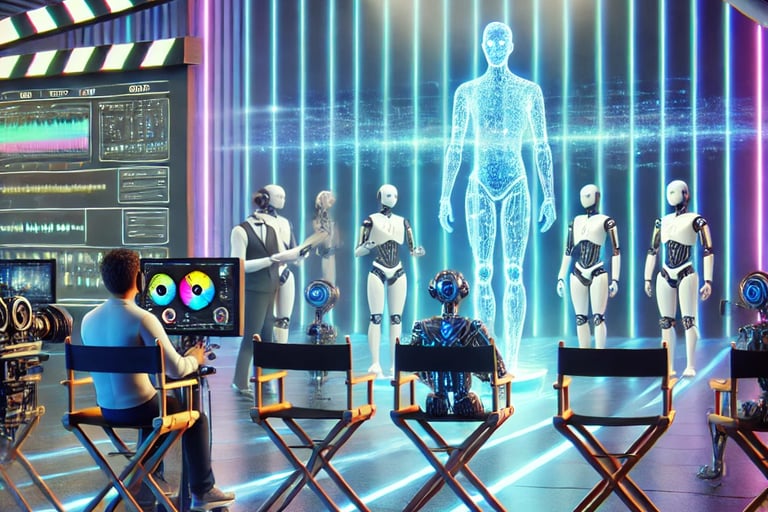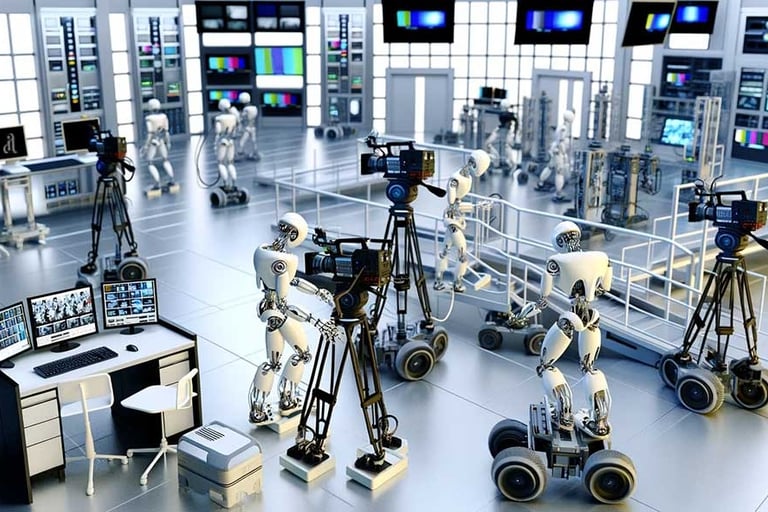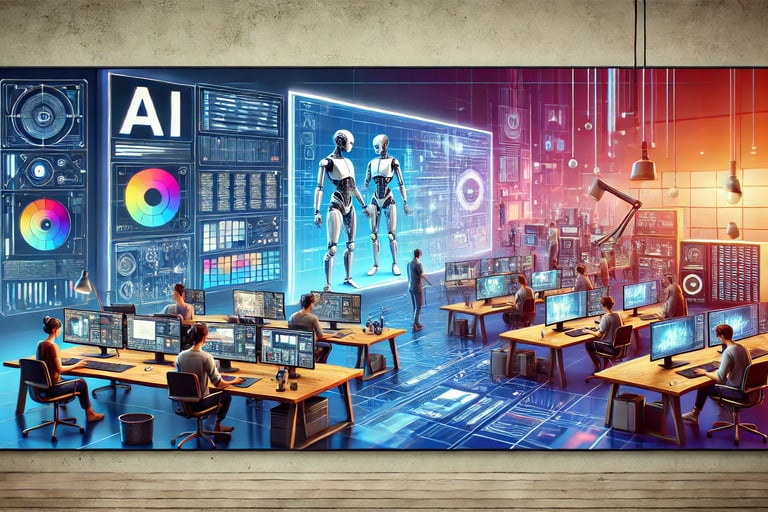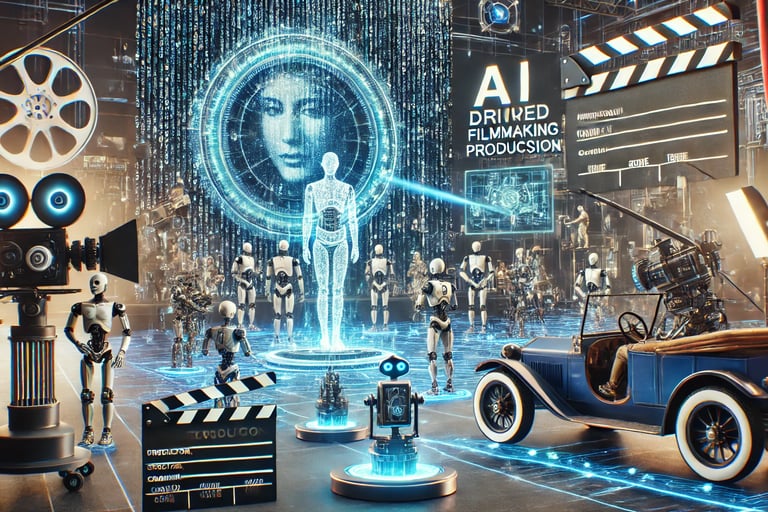Hollywood Kickstarts Movie Production Through AI: What It Means for the Future of Filmmaking in the US
Hollywood is undergoing a dramatic transformation as artificial intelligence (AI) takes center stage in movie production.
ENTERTAINMENT


AI-driven tools are streamlining workflows, reducing costs, and opening new creative possibilities. From writing scripts and generating visual effects to assisting in casting and post-production, AI is reshaping the filmmaking landscape. This shift is not only revolutionizing production but also influencing storytelling, distribution, and audience engagement.
The Future of AI in Hollywood
AI is poised to become an indispensable part of Hollywood’s filmmaking process, but it will not replace human creativity. Instead, AI is expected to serve as a powerful tool that enhances efficiency, expands creative possibilities, and redefines the boundaries of storytelling. Moving forward, studios, unions, and policymakers must collaborate to establish ethical guidelines that ensure AI innovation complements, rather than compromises, human talent.
As Hollywood kickstarts movie production through AI, the future of filmmaking in the US will be determined by how well the industry adapts to these technological advancements. While AI has the potential to revolutionize film production, the heart of storytelling will always remain with human creators, ensuring that movies continue to captivate and inspire audiences worldwide.
The Benefits of AI in Filmmaking
The adoption of AI in Hollywood offers numerous advantages:
Cost Efficiency: Automation reduces production costs, enabling studios to allocate budgets more effectively.
Faster Production Timelines: AI streamlines workflows, accelerating writing, shooting, and editing processes.
Enhanced Creativity: AI tools allow creators to focus more on storytelling and artistic expression rather than technical constraints.
Improved Audience Insights: AI-driven analytics help filmmakers tailor content to audience preferences, increasing the likelihood of box office success.
Challenges and Ethical Concerns
Despite its advantages, AI-driven filmmaking also raises critical concerns:
Job Displacement: AI may replace some human roles, particularly in editing, VFX, and even scriptwriting, leading to job losses in the industry.
Authenticity and Originality: Over-reliance on AI-generated content could dilute the human touch in storytelling and filmmaking.
Legal and Copyright Issues: AI-generated scripts, deep fakes, and digital recreations pose complex legal challenges regarding intellectual property rights and ethical considerations.
As studios increasingly embrace AI, the industry faces both excitement and skepticism. While AI can enhance efficiency and elevate cinematic experiences, concerns about job displacement, authenticity, and ethical considerations remain significant. The question persists: Can Hollywood strike the right balance between innovation and preserving the human essence of filmmaking?
AI in Movie Production: A Game Changer
The integration of AI in Hollywood is not a new phenomenon, but recent advancements have significantly accelerated its adoption. AI-driven tools are now capable of performing a range of tasks that traditionally required extensive human labor, revolutionizing various aspects of movie production.
Key Areas Where AI is Transforming Filmmaking
Scriptwriting Assistance: AI-powered tools like ChatGPT assist screenwriters by generating story ideas, dialogues, and scene structures, reducing the time required for initial drafts and script development.
Visual Effects (VFX): AI enhances CGI rendering, automates background creation, and improves motion capture technology, making visual effects more realistic and cost-effective.
Casting and Deepfake Technology: AI analyzes actors’ past performances to suggest ideal candidates for roles, while deepfake technology allows digital de-aging or even resurrecting actors for new projects.
Post-Production and Editing: AI-driven software automatically edits scenes, adjusts color grading, and enhances audio, significantly reducing post-production timelines.
Audience Analytics: AI analyzes data to predict audience preferences, helping studios make informed decisions about marketing, casting, and storytelling elements.









